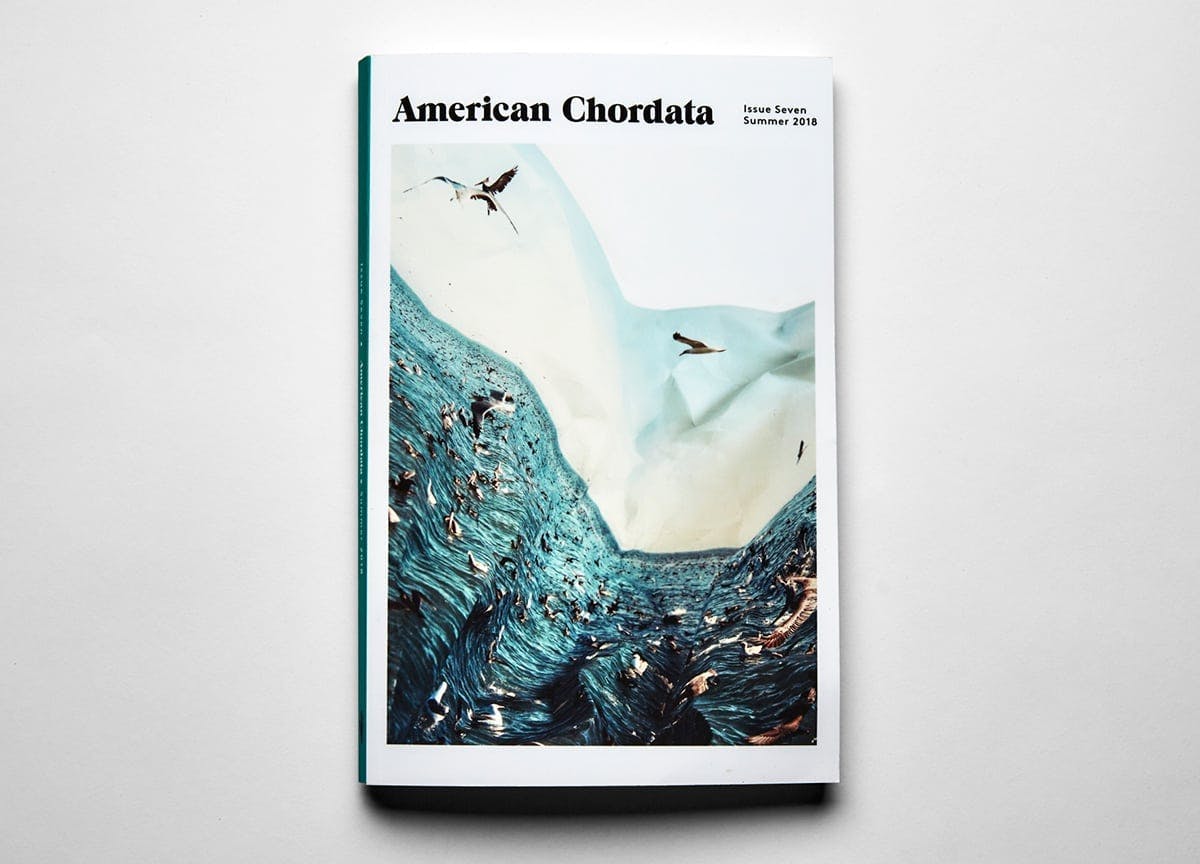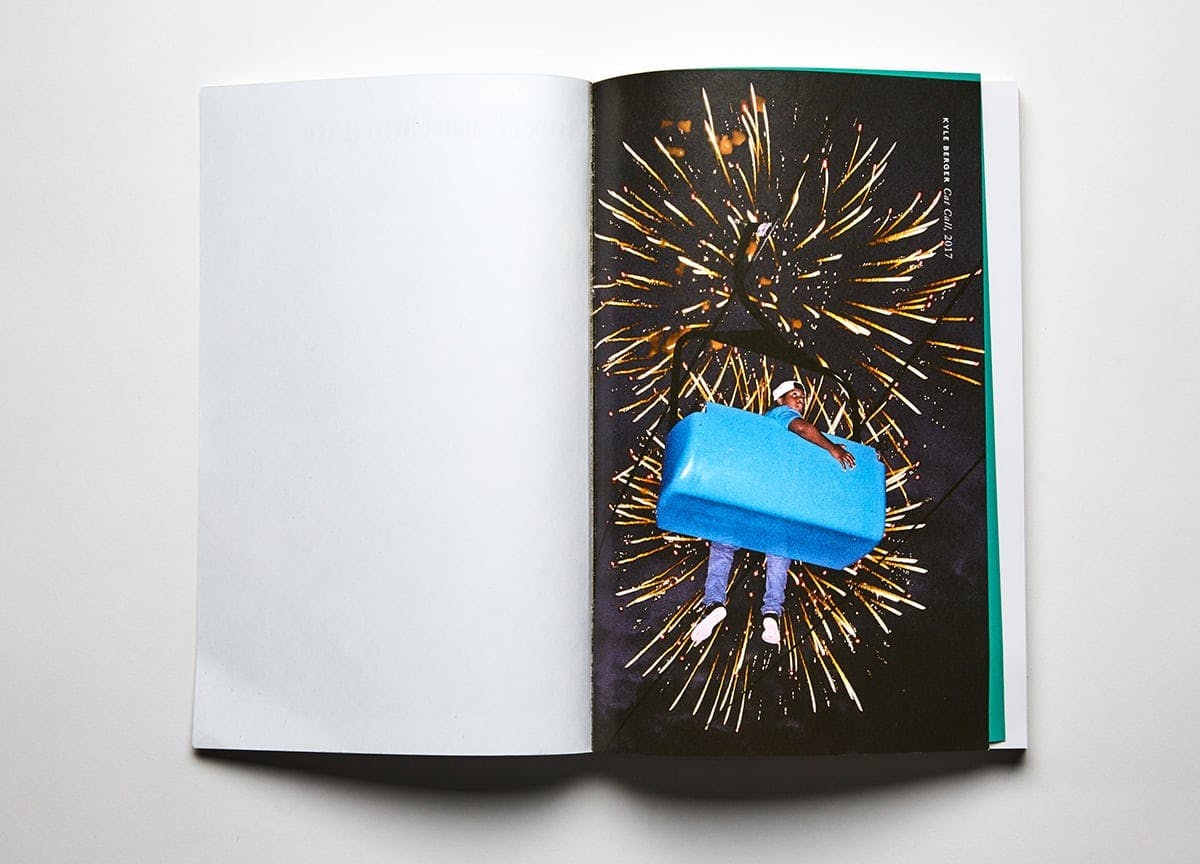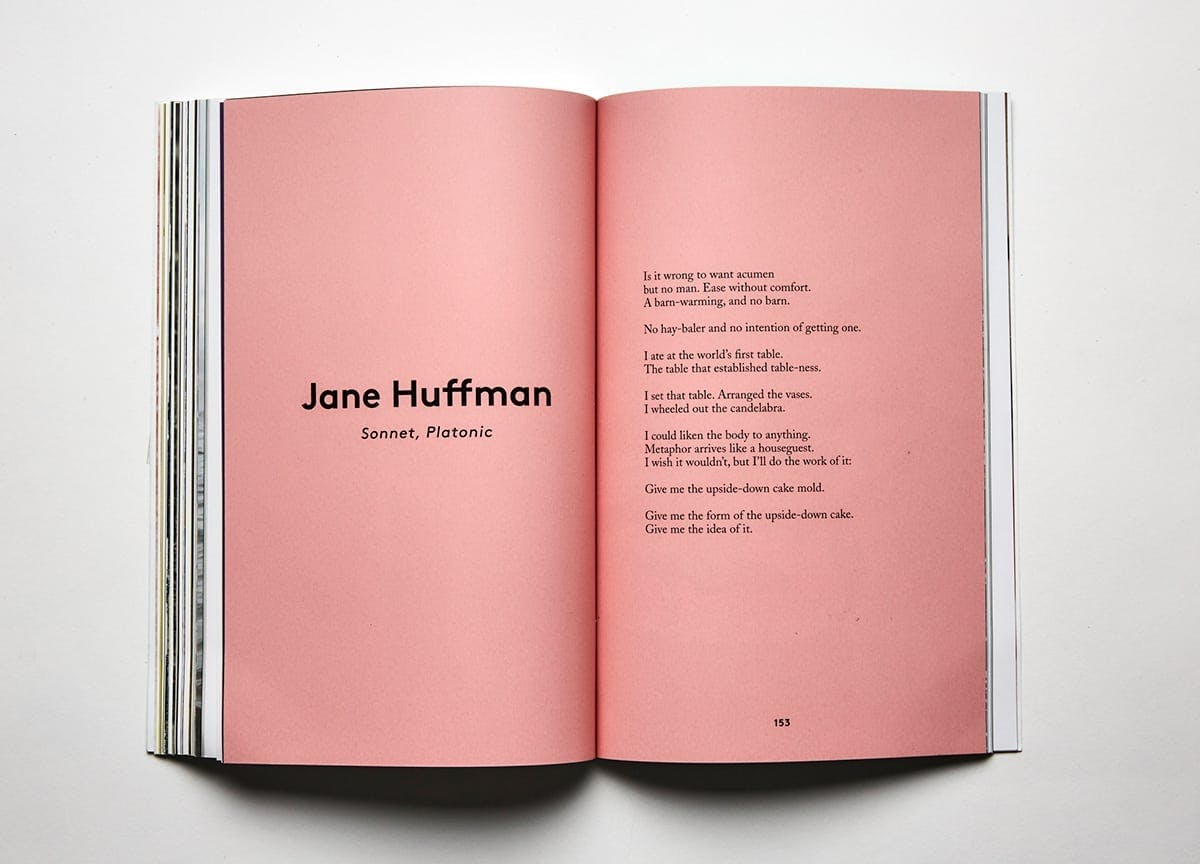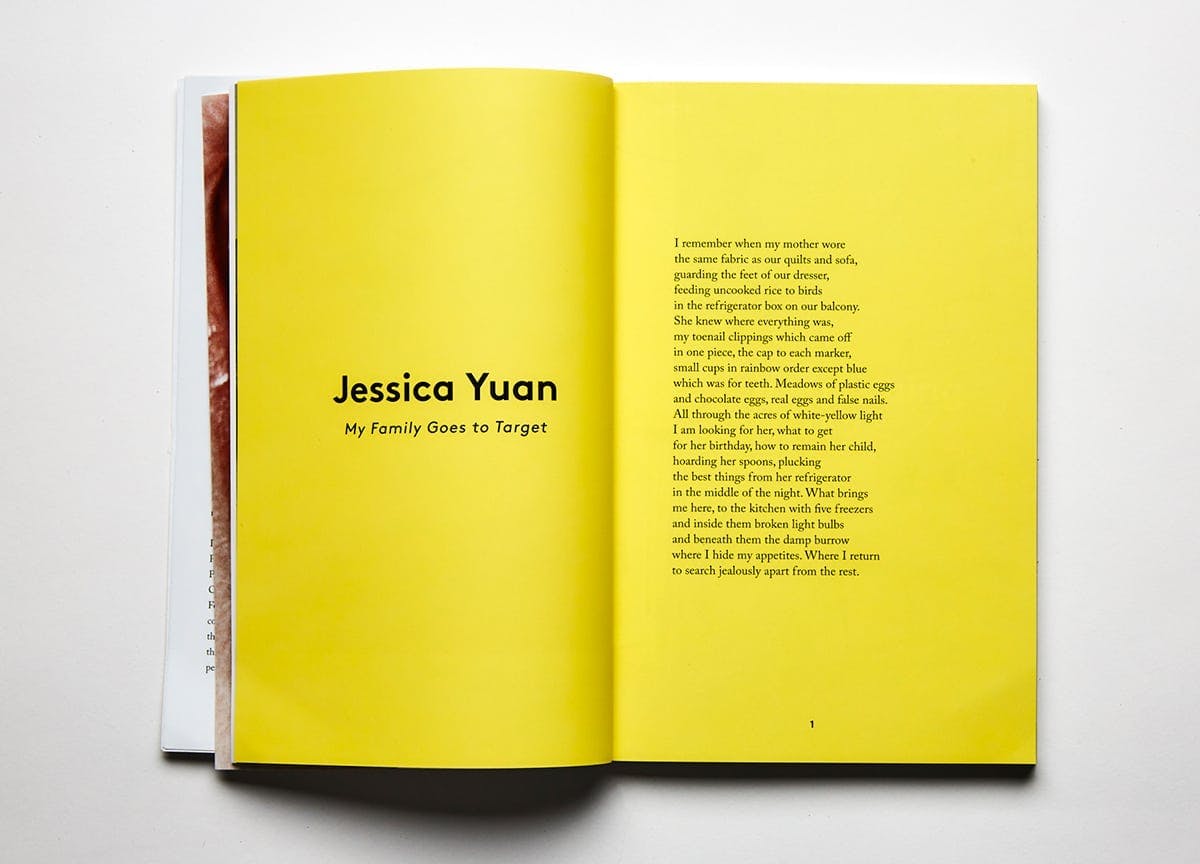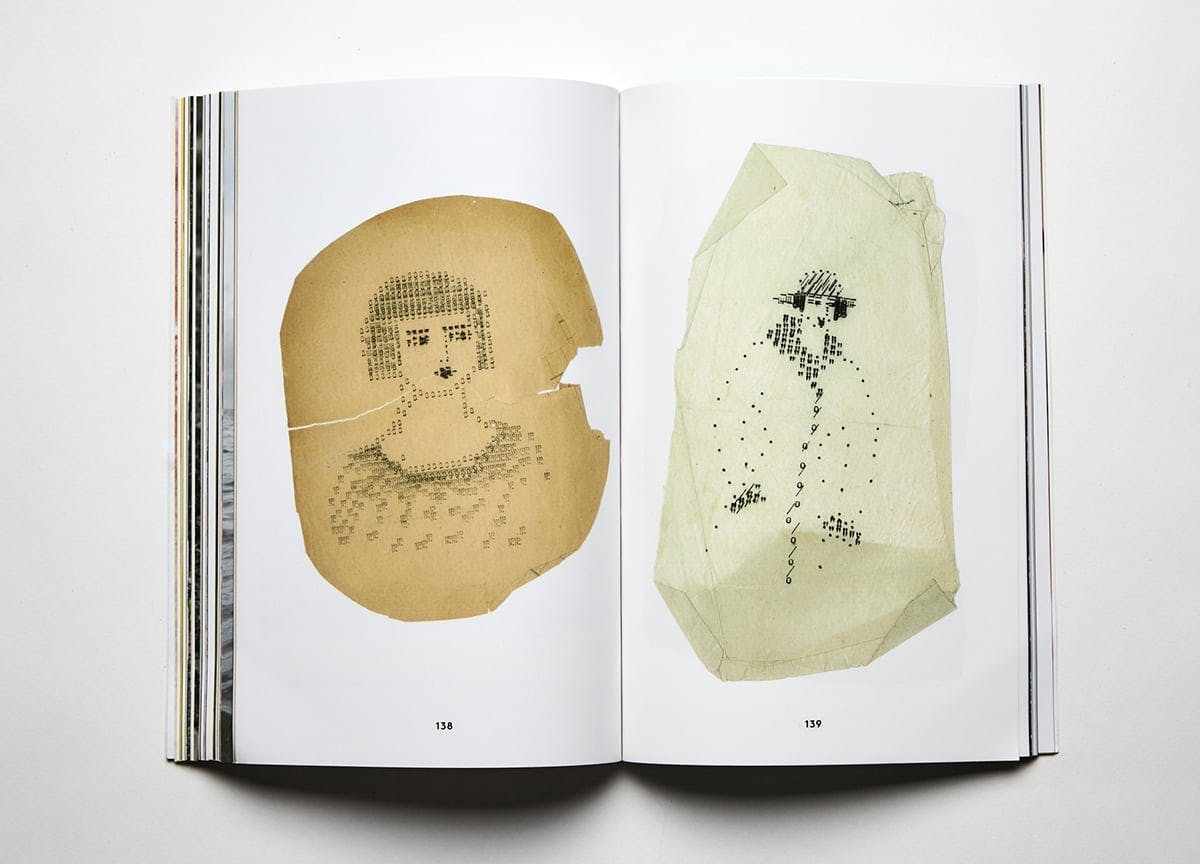Internet finds and soulful stories: explore American Chordata #7
The summer issue of American Chordata is here, delivering delectable short stories, gripping poetry, and thought-provoking essays to commuters’ laps and picnic blankets around the world. It’s a lovely, pocket-sized literary magazine we always look forward to seeing, because we know that it’ll always surprise and delight us with its refreshing voices.
Curious to find out how they put it all together, we got in touch with editor-in-chief Alison Lewis to talk about Tumblr, Frank Ocean, and the nitty gritty of making an independent magazine (it’s not idyllic, but there are pizzas involved).
Congratulations on issue #7! What are you most proud of in this issue?
Thank you! I’m really proud of the quality, bravery, and diversity of the writing in this issue. I actually think it’s our best yet. And the pieces all talk to one another — we don’t set out with a theme or intention in mind, but it always happens; it’s sort of astounding to watch it all come together, and then hold the finished thing — a singular, whole, but remarkably various object — in your hands.
What did you listen to/eat/watch while putting this issue together?
I ate a lot of ice cream and listened to Frank Ocean on repeat. I was also watching Call Me By Your Name over and over again in theatres. It was a very long and dark winter, and I think I was trying to conjure summer for myself.
Who makes American Chordata?
There are now 20 of us. It’s a very passionate and ever-growing group, as (fortunately!) our pile of submissions keeps growing, and our aspirations keep growing too. Sarah Vitali, who is a PhD student in Slavic Languages, recently joined to help us begin publishing works in translation. That has long been a goal of mine, so I’m thrilled.
Where do you usually meet? What’s usually on the agenda for these meetings?
We meet all over Brooklyn and Manhattan, often cramped into one of our living rooms over pizza, or around a table at a bar, or we sneak into someone’s office after hours. At our editorial meetings, we talk through our favourite stories, essays, or poems one by one, with a lot of care and precision, trying to pick out what’s working and what isn’t, and ultimately what we feel most deeply called to publish. At our art meetings, it’s our art director Bobby Doherty and me staring at his computer screen for hours on end and reading poetry aloud to each other as we’re piecing the art and writing together.
Sounds dreamy. You often sources images from Tumblr — is there anything in particular you look for? What’s the process like for putting them together with the writing? (Visuals in the magazine are not necessarily ‘illustrations’ but do complement the text…)
Ha, yes, Tumblr and all over the internet. In the months where the editors are reading submissions, Bobby is saving a big folder of art. He’s just saving things that he’s never really seen published before — stuff that’s surprising, whether because it’s very new or very old and newly digitised. And then we sort of go by feel, seeing what resonates with the text or challenges it — never in literal ways, but in the emotion or tone. In that way, we experience the art and writing together.
Tell us about a couple of pieces you’re particularly excited about…
This issue has a series of typewriter art (above) made by a woman named Elena Evgen’evny in Moscow, in the early decades of the Soviet Union (1920s and 30s). She typed to make a living, and then used the typewriter keys to make these drawings as a hobby. This is one of Bobby’s amazing internet finds; he managed to track down Elena’s granddaughter in Moscow, who sent us scans. They’re remarkable — beautiful, detailed depictions of houses and people, mostly women.
I am so proud of all the writing in this issue that it’s difficult to pick anything out, but I’m especially excited to be publishing a number of bold, unflinching, visionary writers for the very first time. Malika McCoy is one of those writers, and her essay on domestic abuse and cooking is soulful, sharp, and (amazingly) funny.
This marks your second issue as the editor — do you have any advice for aspiring magazine makers?
A few things: one is that making (and, particularly, funding) a magazine is really hard and not at all idyllic and ‘literary’ most of the time, like I imagined it would be. I spend a lot of time negotiating with our printer and chasing down payments and worrying about shipping costs. But I have come to find that all interesting and sort of a fun challenge, and I’m just so determined to make it work against all odds that it’s really gratifying every time a new person subscribes, or we actually get a check to the printer on time.
But I could not possibly do it without the whole team. I can’t even imagine it. They’re there cheering when we find a hack for shipping and when we come across a story that creeps under our skin and stays there. We’re always picking each other up and keeping it going, and inspiring one another with our weird literary/artistic visions. So, you know, I recommend teamwork! And also staying very close to why you’re doing it: for me, it’s the writers and artists whose work we want to lift up and bring together. When we’re doing that, it’s all worthwhile.

